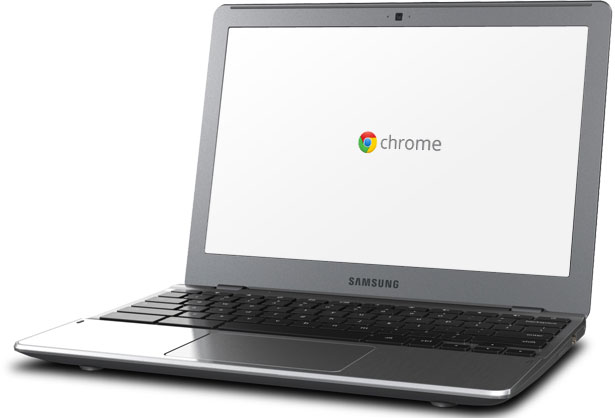The Linux desktop, thanks to Chromebooks, goes retail

At Google I/O , Google's Senior VP of Chrome and Apps, Sundar Pichaihasm announced that Samsung's Series 3 Chromebox and Series 5 Chromebook will soon be available in Best Buy stores in the US and Dixons in the UK.
Contrary to what some people are saying, this is far from the first time that Linux-powered PCs have been sold by major retailers. Back in 2008, Best Buy, Sears, and Wal-Mart were all selling Linux desktops. These were all netbooks—low-powered, low-priced laptops. At the time, Microsoft was still trying to talk people into using Vista and people hated Vista.
Microsoft eventually realized that no one was buying Vista at the low-end, and darn few people at at any end really, and so they brought back Windows XP Home in the end of 2008. Microsoft followed this up by selling XP Home at below cost to original equipment manufacturers to kill off the Linux netbook market. Microsoft was successful. By May 2010, ASUS, which had been desktop Linux's biggest OEM supporter, quietly abandoned the Linux netbook.
That was in 2008. This is 2012.
Google is a much bigger player than gOS, Linspire or Xandros, the leading netbook desktop Linux distributors of the netbook day. In addition, none of Microsoft's PC partners then wanted to fight with their biggest partner.
In recent weeks, Microsoft has betrayed its partners. And, like Vista before it, Windows 8 is an operating system that even Microsoft's biggest fans are having trouble loving it.
Chromebooks aren't just for the retail market . Other companies, like Pano Logic, are offering Chrome PCs to business customers.
You might wonder how a Linux, cloud-based system like the Chromebook's Chrome OS can really find a consumer or business market since it requires you to be online. Well, you see, Chrome OS doesn't need to an Internet connection to work now.
You've long been able to use Google Mail offline and, as of today, the word processing side of Google Docs can work off-line. Google also said that its other office-suite services, such as Google Presentations and Spreadsheets will soon be available off-line as well. Last, but by no means least, Google Drive has also been extended to Chrome OS. That means anything you store on your cloud drive will also be available on your off-line Chromebook.
In short, Chrome OS, and Chromebooks, are transforming from Linux-based, thin-client systems to full competitors with Windows systems. Would that be enough to get people to switch if their main choice was their pick of Windows 7 PCs? Probably not. But, when your choice will be Windows 8 systems, well, like Vista before it showed, customers may prove to not be that loyal to Microsoft after all.
Related Stories:
Has Microsoft opened the door to the Linux desktop? Windows 8's downfall still doesn't give Linux a chance Pano Logic in Google Chrome 'zero-client' business pitch Microsoft: The Evil Empire re-Surfaces The new Chromebooks rock and cr-48 owners will have less to envy in a month
